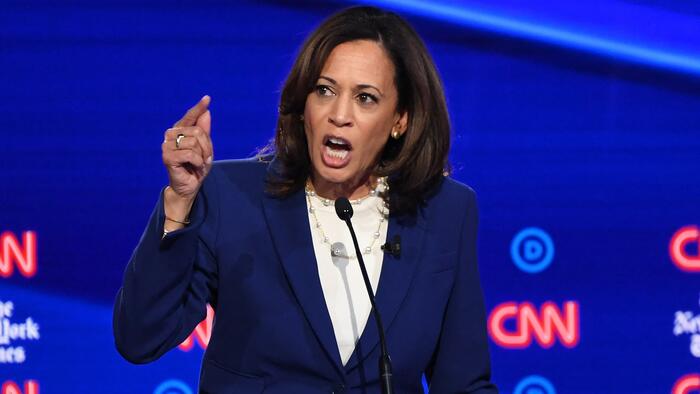In recent months, Vice President Kamala Harris has witnessed a steady decline in her approval ratings, prompting the Democratic National Committee and mainstream media to hastily devise increasingly implausible talking points in her defense. In a bid to undermine political opponents such as J.D. Vance and Donald Trump, claims labeling them as “weird” have failed, especially in light of some eccentric figures within the Democratic ranks, notably Tim Walz and Doug Emhoff. Moreover, attempts to portray Trump as “exhausted,” “senile,” and “confused” have also fallen flat, as voters notice that Harris herself often works considerably shorter hours than her rivals. In her comments about President Biden, she described him as “absolutely authoritative” and “vibrant,” despite their own party’s struggles, signaling a disconnect between Harris’s rhetoric and public perception.
Amid the chaos of the election cycle, the dichotomy between Trump’s tangible record during his presidency (2017-2020) and the current Biden-Harris administration (2021-2024) could not be clearer. Trump’s term was marked by policies such as border security, low inflation, and military deterrence against adversarial nations like Russia and China. In stark contrast, the Biden-Harris administration has been plagued by crises, including uncontrolled illegal immigration, rising inflation, and widespread unrest as a result of its adherence to what many voters view as an unpopular woke agenda. This divergence has begun to resurface as both voters and some Democratic senators publicly favor the issues Trump championed while distancing themselves from Harris’s hardline progressive positions—a significant pivot that has not gone unnoticed.
Under pressure to rejuvenate her campaign, Harris has undergone a rapid transformation, distancing herself from the “defund the police” narrative and pivoting to support increased police funding, a secure border, and expanded defense budgets. This abrupt change has raised eyebrows, especially as it suggests that Harris may recognize the failures of the policies espoused during the Biden-Harris years. In many key battleground states, several endangered Democratic incumbents are increasingly aligning themselves with Trump’s successful strategies rather than identifying with Harris’s controversial and unpopular legacy, emphasizing the challenges she faces in re-establishing credibility with both voters and fellow party members.
Harris’s claims that Trump is a fascist or an insurrectionist appear to resonate less with an electorate that recalls the violent protests and civil unrest during the summer of 2020, which she characterized in a manner that seems hypocritical when she critiques her opponents. While portraying Trump as a danger to democracy, she neglects to account for the Biden-Harris administration’s controversial tactics, such as alleged abuse of federal power against political rivals and manipulation of federal agencies like the FBI and CIA during election cycles. These actions have left many voters concerned about the political landscape, raising questions about who constitutes a genuine threat to democratic processes, thereby diluting Harris’s narrative.
The question of Trump being “unfit” or lacking “decorum” is also under scrutiny when juxtaposed against the standards set by the Biden-Harris administration. With increasingly erratic public behavior and controversial comments emanating from the top, the definition of appropriateness in political behavior has blurred. This has resulted in voters focusing less on superficial character assessments and more on the substantive issues facing the nation. Harris’s attempts to diminish Trump on personal grounds may ultimately lead voters to question the integrity and stability of the leadership they expect from their representation.
Ultimately, the election is poised to center on two critical factors: the comparative effectiveness of each candidate’s past record and current agenda, alongside their perceived authenticity. Voters are becoming increasingly astute in judging their leaders not merely by rhetoric, but by tangible outcomes that reflect a responsive governance model. As such, Harris and her supporters must not only defend against narratives pitting her against Trump but also present a coherent vision that can resonate with a populace weary of political gamesmanship and eager for resolute leadership. As the election year unfolds, the Biden-Harris ticket’s struggle to reclaim the narrative may hinge significantly on their ability to confront the stark realities of their policies head-on while offering a vision that genuinely appeals to the electorate’s desires and grievances.

